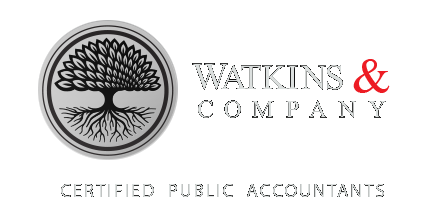10 Pitfalls to Avoid in Small Business Accounting
What common accounting mistakes should small business owners avoid?
- Inaccurate Financial Reporting
Financial reporting is only as accurate as the data entered. As such, it’s crucial to be detailed and meticulous with financial reporting and data entry. This will ensure that your data can be relied upon to make decisions and promotes financial transparency.
- Cash Flow Challenges
Cash flow is undeniably one of the most important elements of small business operations and ultimate success. It is also very difficult to properly manage for many business owners. Inaccurate tracking of income and expenses can hinder your business’s ability to meet financial obligations and run smoothly.
- Tax Compliance Issues
The old adage “Don’t mess with the IRS” stands as a warning to businesses across the United States, both large and small. Maintaining accurate tax records is an absolute must. Doing so will also help you minimize errors in tax returns and avoid potential penalties imposed by tax authorities.
- Missed Deductions and Credits
Another aspect of tax recording is to ensure you optimize every opportunity for deductions and tax credits. Poor recordkeeping will often lead to higher tax liabilities than necessary.
- Late Payments and Penalties
Inefficient accounting processes may result in missed payment deadlines for bills and taxes, leading to late fees and penalties.
- Poor Decision-Making
All of the aforementioned concerns ultimately lead to poor business decisions and missed opportunities. Without accurate financial information, you cannot make sound business decisions that will propel your business to the next level of success. Avoid strategic errors that arise from unreliable data and keep accurate records, or simply utilize the services of a small business accounting firm like Watkins & Co.
- Lack of Budgeting and Planning
Successful long-term planning for your company all begins with proper budgeting. Achieving your financial goals requires strategic planning and adherence to the budgets you set.
- Inefficient Recordkeeping
Poor organization and a lack of a proper recordkeeping system can lead to errors and misplaced documentation. To avoid such errors, make sure to have an efficient and effective recordkeeping system established that makes your financial documents (invoices, receipts, contracts, orders, etc.) easy to organize and locate.
- Mixing Personal and Business Finances
Avoid using the same bank accounts and credit cards for personal use and business use. This makes for convoluted and confusing financial recording.
- Misuse of Accounting Software
Accounting software exists for a very good reason. It simplifies the entire financial process for businesses when used properly. It’s important to know all the reporting and recording capabilities your software provides, as well as ensuring that data is entered accurately and consistently.
Potential Consequences of Small Business Accounting Mistakes
Poor accounting practices may result in legal consequences, including disputes with vendors, employees, or regulatory authorities due to financial discrepancies. Inaccurate or incomplete financial records may make it challenging for the business to secure loans or attract investors, limiting growth opportunities.
Best Small Business Accounting Firm Jackson, MS
For all these common accounting mistakes by small businesses, Watkins & Co. is the solution! We are your reliable partner in accurate, efficient, and effective financial management. We can help you address the pitfalls that you may face with inaccurate financial reporting, enabling your small business to make informed decisions, keep your financial flow healthy, and your company thriving.




